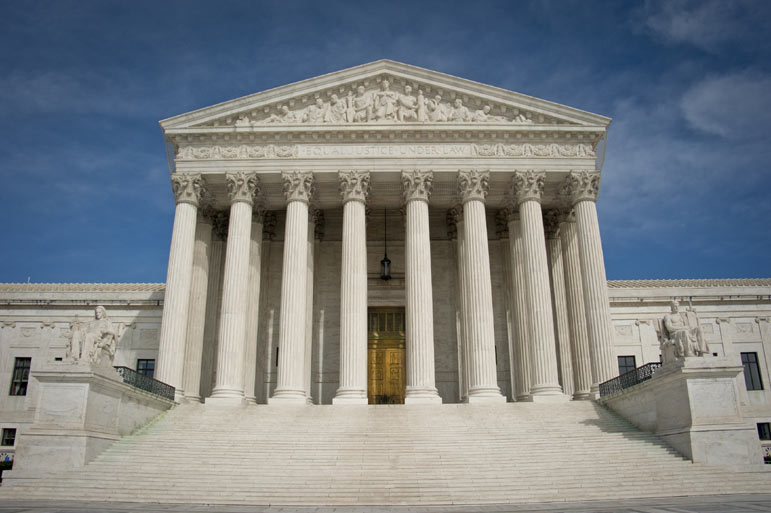
The 5 to 4 ruling split the court along ideological grounds, and it was the second time the court had cut back the reach of the 1789 Alien Tort Statute.
Justice Anthony Kennedy wrote for the court's conservatives.
"Courts are not well suited to make the required policy judgments that are implicated by corporate liability in cases like this one," he wrote, adding, "Congress, not the judiciary, must decide whether to expand the scope of liability under the ATS to include foreign corporations."
He was joined by Chief Justice John Roberts and Justices Clarence Thomas, Samuel Alito and Neil Gorsuch.
The court has attempted before to give a 21st century interpretation to the Alien Tort Statute (ATS), which was enacted by the first Congress. The justices have limited the kind of actions that can be brought but in 2013 declined to decide whether corporations were immune from suits under the statute.
The case at hand involved 6,000 foreign citizens who allege the Arab Bank provided financial services to terrorists who engaged in attacks against Israelis in 2000. The bank is a multinational corporation based in Jordan with a federally chartered branch in New York.
The plaintiffs said the suit was authorized by the ATS, which was largely ignored for 200 years before human rights organizations began filing suits seeking relief for abuses overseas. The statute allows federal courts to hear "any civil action by an alien for a tort only, committed in violation of the law of nations or a treaty of the United States."
In the 2013 decision, the justices said people or entities sued under the ATS must have a real connection to the United States. In the current case, the plaintiffs allege the branch in New York City meets that standard.
The victims allege the branch transferred millions of U.S. dollars that were used to finance terrorist attacks between 1995 and 2005 in Israel, the West Bank and Gaza.
The U.S. Court of Appeals for the 2nd Circuit had said the suit could not go forward.
Justice Sonia Sotomayor wrote a dissent, which was joined by fellow liberal Justices Ruth Bader Ginsburg, Stephen Breyer and Elena Kagan.
"In categorically barring all suits against foreign corporations under the ATS, the court ensures that foreign corporations - entities capable of wrongdoing under our domestic law - remain immune from liability for human rights abuses, however egregious they may be," Sotomayor wrote.
The case is Jesner v. Arab Bank.
Patent case
On a 7 to 2 vote, the court upheld an administrative system that began during the Obama administration to review challenges to patents, one that has helped high-tech companies.
The case involves the Patent Trial and Appeal Board, which Congress established to respond to complaints about patent "trolls." Those are patent owners who don't use their patents to make products so much as to sue companies that infringe upon their rights.
Silicon Valley tech companies particularly have used the system to invalidate patents.
But some patent holders, such as drug companies, say the process overseen by administrative patent judges is not as rigorous as that supervised by courts and thus falls short of what the Constitution demands. The companies say the process makes it harder to protect their work.
Thomas, writing for the majority, rejected a challenge to the process that said patents, once issued, can only be taken away by federal courts.
"The decision to grant a patent is a matter involving public rights - specifically, the grant of a public franchise," Thomas wrote. The review system "is simply a reconsideration of that grant, and Congress has permissibly reserved the [Patent and Trade Office's] authority to conduct that reconsideration."
Roberts and Gorsuch dissented.
"Until recently, most everyone considered an issued patent a personal right - no less than a home or farm - that the federal government could revoke only with the concurrence of independent judges," Gorsuch wrote. Giving the power to an executive agency, he said "represents a retreat from the promise of judicial independence."
The case is Oil States Energy Services v. Greene's Energy Group.


 Contact The Editor
Contact The Editor
 Articles By This Author
Articles By This Author